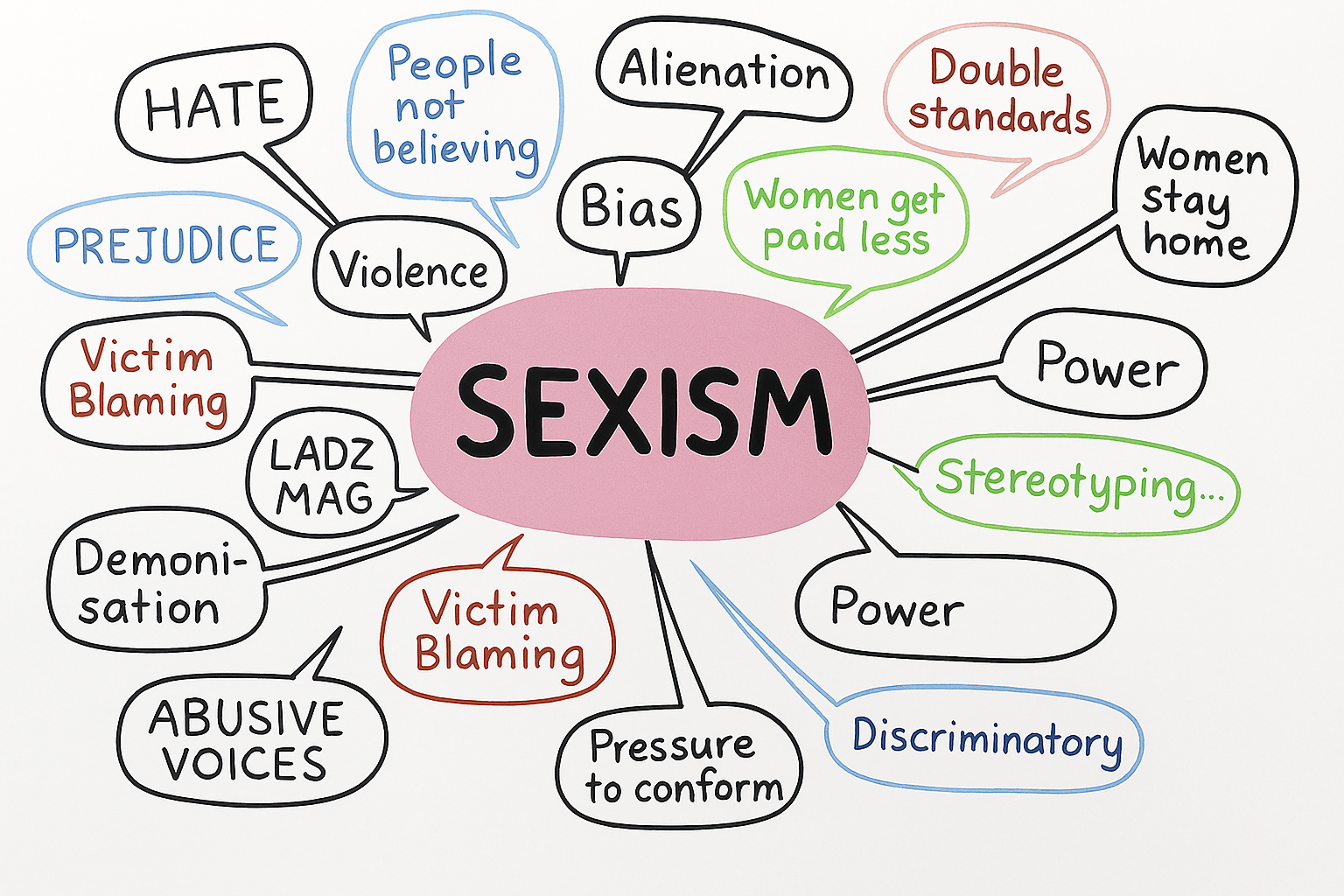
Sexism and Misogyny Awareness Workshops For Schools
Sexism and misogyny awareness workshops are not a luxury—they are a necessity. They respond directly to the lived experiences of students, the concerns of educators, and the evolving digital landscape. By investing in these workshops, schools can create safer, more inclusive environments and empower the next generation to challenge harmful norms and build respectful relationships.
Our school packages are fully customizable and designed to align with key educational frameworks and guidance documents. These include the PSHE Education Framework, DfE statutory guidance on RSHE, and the Ofsted Inspection Framework. Additionally, our programs meet the safeguarding requirements set out in Keeping Children Safe in Education.
The 2021 Ofsted review into sexual abuse in schools and colleges revealed a deeply troubling reality: sexual harassment and online abuse are so prevalent that many students—particularly girls—consider them “normal” parts of school life. Approximately 90% of girls reported experiencing sexist name-calling and receiving unsolicited explicit images, often without adequate support from staff. The Women and Equalities Committee Report (2023) further underscored these issues, identifying the widespread nature of sexual harassment and violence in educational settings and the failure of institutions to address them effectively. These findings emphasize the urgent need for proactive educational interventions.
Exacerbating these challenges is the pervasive influence of social media. Platforms like TikTok, YouTube, and Instagram frequently host misogynistic content, where some influencers promote hyper-masculine ideals that glorify dominance, emotional suppression, and contempt for women. These narratives particularly impact boys and young men, shaping their views on gender roles and relationships in ways that can foster aggression, entitlement, and emotional detachment. Without critical media literacy and guided reflection, students are susceptible to internalizing these harmful ideologies.
Sexism and misogyny awareness workshops offer a vital counterbalance. They provide safe spaces for dialogue, challenge harmful norms, and equip students with the tools to navigate relationships and media with integrity. In doing so, they not only protect young people from abuse but help cultivate a generation that values equality, empathy, and mutual respect.
Find out more
Ofsted. (2021). Review of sexual abuse in schools and colleges. [online] Available at: https://www.gov.uk/government/publications/review-of-sexual-abuse-in-schools-and-colleges
Women and Equalities Committee. (2023). Attitudes towards women and girls in educational settings. House of Commons. [online] Available at: https://committees.parliament.uk/publications/42100/documents/210000/default/
Why Sexism and Misogyny Awareness is Crucial in Schools.
Workshop Aims
Raise Awareness: Increase understanding of sexism, misogyny, and their impact on school culture.
Define and Recognise: Clearly define sexual harassment, identify its various forms (verbal, physical, online), and comprehend its impact on individuals and communities.
Promote Healthy Interactions: Explore consent, boundaries, and respectful behavior. Equip students with strategies for responding to and reporting harassment.
Encourage Critical Reflection: Facilitate reflection on peer culture, stereotypes, and personal responsibility.
Develop Media Literacy: Provide students with tools to critically evaluate online content and influencer narratives.
Foster Equality: Promote respectful relationships and gender equality.
Support Staff: Training and resources to staff to effectively address gender-based harassment.
Sample Workshop Contents
Each workshop will be tailored to Key Stage 3, 4 and 5 students and delivered by trained facilitators. Sessions will include:
Interactive Activities: Role-play, scenario analysis, and group discussions.
Media Literacy: Deconstructing influencer content and online trends.
Empathy Building: Exploring the emotional impact of harassment and exclusion.
Action Planning: Encouraging students to become active bystanders and allies.

